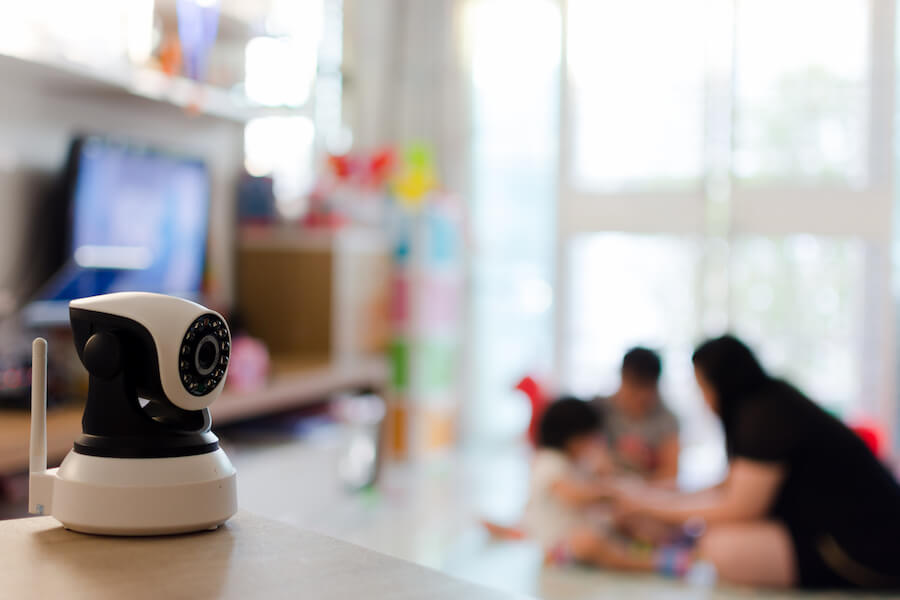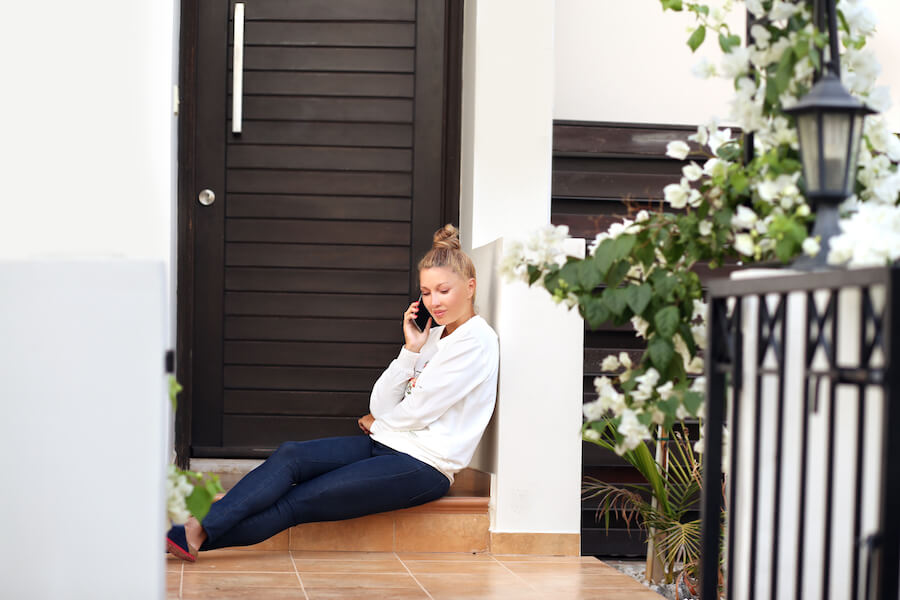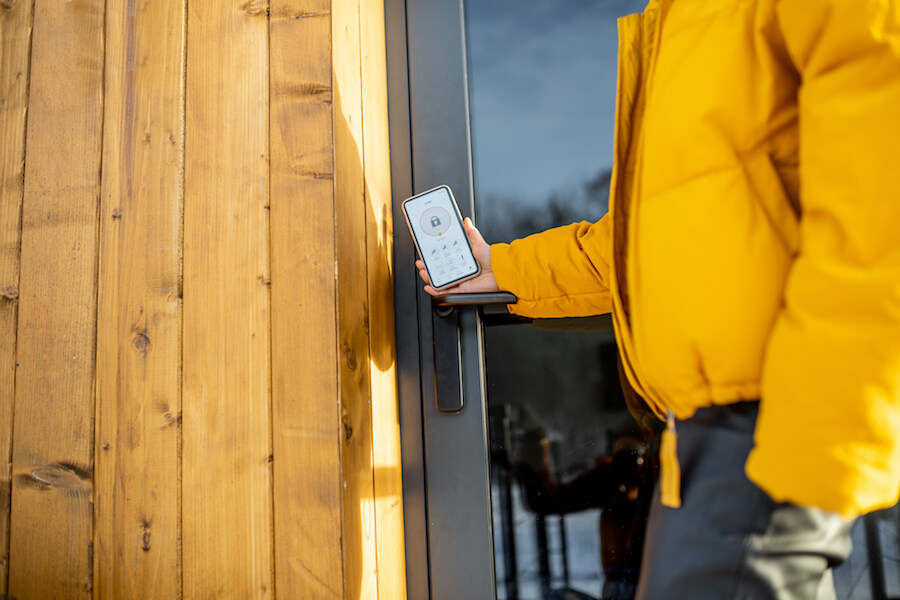Home security cameras guide 2020: Securing your home with CCTV

The world of home security cameras can be overwhelming for a novice. If you’re not familiar with home security technology and are looking for some help from the experts when it comes to choosing the best security cameras for your property, then this guide is for you.
Locksmiths Perth 24/7 are experienced in home security with over a decade in the industry. We’ve tested out many different security cameras over the years and know what works best for the average homeowner. Read on to learn all about security cameras and how they can help you.

Topics in this article:
How do security camera systems work?
‘How do security cameras record video?’ is a common question we get asked. A home security camera is typically a camera that is motion-activated that will capture and send videos to your smartphone or computer when it detects movement, alerting you that there’s someone inside or around your premises. Most commercial establishments use security cameras that offer continuous video recording (CVR), which means the camera records round the clock capturing everything that happens in its range.
Do you need a DVR for security cameras?
Technology has come a long way, and security cameras can now be connected to your smartphone, tablet, computer or laptop. So, a DVR isn’t mandatory. The primary function of a DVR (Digital Video Recorder) is to record and store the CCTV camera footage on a hard drive, making it easy and hassle-free for you to access it online or through a local network at a later date.

Which is the best security camera DVR available in Australia?
There are many different DVR brands available in Australia such as Swann, Elinz, Samsung, Uniden Guardian, UL-tech, Arlo, Reolink and more. Which DVR is the best one for you will depend on factors such as:
- How many security cameras are you planning to install?
- How much storage capacity will you need on your DVR?
- Are you installing security cameras for private or commercial properties? If it’s a commercial property with a lot of footage to be captured and stored, you will need a DVR that has a high recording rate and storage capacity.
Based on the answers to the above questions, you can narrow down your choices and pick a DVR that fits your criteria.
Types of CCTV Cameras
Wired security camera
As the name suggests, wired security cameras require cables for power, internet connection and video transmission. They are most commonly used on large properties.
Wireless and wire-free security cameras
Both wireless and wire-free security cameras connect to your Wi-Fi and transmit the security footage to a recorder. You can then access the footage via cloud storage.
The main difference between wireless and wire-free cameras is that wireless cameras require wired power, but wire-free cameras are powered by battery-operated systems, so no cables or wires are required.
Standalone cameras
If you need just one camera to monitor a specific area in your home, then a standalone camera is a great option. They are popular with pet owners and parents as they’re great for keeping an eye on your pet or children.
CCTV kits
Are you looking for a comprehensive security camera system to monitor and cover your entire property? Then you need to invest in a CCTV kit. There are many different wired and wireless security camera systems available in the market. Many of these kits allow you to add on more cameras in the future if you need, so you can start small and expand as needed.
How many cameras do you need for your home?
If you’re considering installing a security camera system and wondering how many cameras you should install, then start with three to four cameras. Typically, it would be best if you focused on these sections of your home:
- A camera at your doorstep so you can keep an eye on your front door and know when people approach your home and packages are delivered.
- A camera on the front of your house and one at the back points of entry.
- The fourth camera can be installed inside the home to keep an eye on your valuables, pets and children.
What CCTV camera resolution should I get?
The most common resolution for home security cameras are 2MP (1080p), 4MP (1440p), 5MP (1920p) and 8MP (2160p). The higher the resolution of your CCTV camera, the better the quality of the footage with enhanced zooming capabilities of recorded footage.
For an average home security system, the ideal resolution would be 4MP or 5MP as they offer high-quality image and have a wider field of view than the 2MP cameras. Of course, if budget is not a constraint, you can go for 8MP. But in general, 5MP would be a great choice for most home security systems.
What do IP ratings mean for security cameras?
The IP (Ingress Protection) rating consists of a series of numbers that provide the consumer with reliable standards for rating the suitability of a camera for outdoor elements such as dust and rain.
The first digit refers to the size of the particles for which the camera is rated. For instance, if your camera’s rating is five, it means that it’s protected against dust, but some dust might still get in. But a rating of six means the camera is entirely secure and protected against all dust.
The second digit in the IP rating refers to the product’s protection against water intrusion. So, a number four rating means the camera is protected against splashing water, and it won’t affect its mechanical or electronic components. Whereas, an 8 rating means that you could immerse the camera in water of over one-metre depth and it won’t be damaged.
When choosing an outdoor security camera for your home, look for an IP rating of 64. This will mean that the camera is protected against all dust as well as water.

How to install security cameras?
Depending on the complexity of the security camera system that you opt for, you might have to hire a professional locksmith or security expert for security camera installation. If it’s a simple system, you can try doing it yourself following the setup guide and instructions offered by the manufacturer. If the instructions are confusing or challenging to follow, the smartest thing would be to hire a professional for the job. After all, you don’t want to damage the cameras in your attempt to install them inadvertently.
Home security camera systems are no longer a novelty. Security cameras have become quite commonplace as homeowners see the wisdom of having their homes protected and monitored to dissuade burglars and vandals. If you’ve been thinking about installing security cameras in your home, we hope this article has helped answer all your questions, and you can now make an informed decision.




